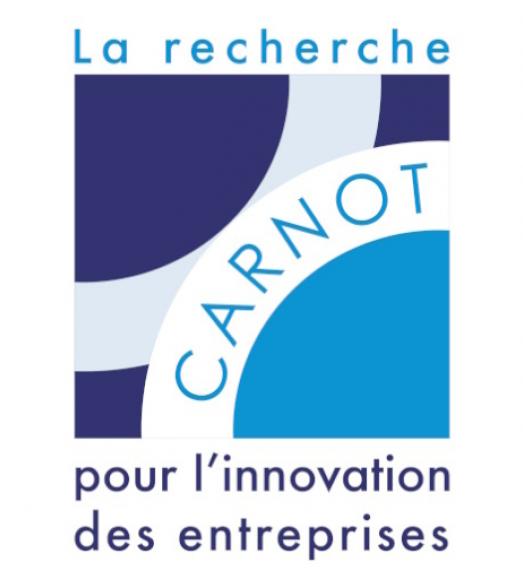
Carnot Institute label
Carnots are public research bodies recognized and labeled by the French Ministry of Research. Their expertise lies in their ability to carry out research projects in collaboration with companies, whether start-ups, SMEs, ETIs or major groups, in order to stimulate innovation.
TRANSFORMING SCIENTIFIC EXCELLENCE IN HEALTH INTO ECONOMIC SUCCESS
CARNOT@AP-HP INSTITUTE
The Carnot@AP-HP Institute structures a pole of acceleration of partnership with companies involved in health innovation. By relying on the expertise of AP-HP professionals, European leader in clinical research, the Carnot@AP-HP proposes a range of collaborations and partnerships in applied research in health technologies adapted to industrialists, particularly to startups and SMEs.
The AP-HP obtained the Carnot label in February 2020, and as such has been the first university hospital (CHU) to be awarded with this label. This is a recognition of the AP-HP's ability to contract with companies to validate the innovations they bring, thanks to the synergy of its care, teaching and research missions. Within the framework of its Charter of Industrial Partnerships, the AP-HP is currently partnering with 7 companies: AIR LIQUIDE SANTE, BIOMERIEUX, IQVIA, JANSSEN, MSD, OWKIN, SANOFI.
A COMMITMENT TO PARTNERSHIP RESEARCH IN HEALTH
Carnot@AP-HP offers expert support based on rare resources:
- High-level methodological support to co-construct the clinical and scientific validation of the innovation
- A wise orientation towards relevant use cases and potential investigators
- Technical and regulatory support for dialogue with health agencies and independent authorities
- Simple and rapid contracting processes
- Monitoring of partner satisfaction
The AP-HP obtained the Carnot label in February 2020, and as such has been the first university hospital (CHU) to be awarded with this label. This is a recognition of the AP-HP's ability to contract with companies to validate the innovations they bring, thanks to the synergy of its care, teaching and research missions. Within the framework of its Charter of Industrial Partnerships, the AP-HP is currently partnering with 7 companies: AIR LIQUIDE SANTE, BIOMERIEUX, IQVIA, JANSSEN, MSD, OWKIN, SANOFI.
A COMMITMENT TO PARTNERSHIP RESEARCH IN HEALTH
Carnot@AP-HP offers expert support based on rare resources:
- High-level methodological support to co-construct the clinical and scientific validation of the innovation
- A wise orientation towards relevant use cases and potential investigators
- Technical and regulatory support for dialogue with health agencies and independent authorities
- Simple and rapid contracting processes
- Monitoring of partner satisfaction
Key numbers

728
R&D contracts in 2021

748
Patent portfolios (1/3 already licensed)

17
Drugs and medical devices on the market

44,1
Consolidated budget (M€)
CARNOT OPALE
Created in 2006, the Carnot Institute program is a label of excellence, accompanied by funding, awarded to public research institutions in France that are committed to developing public-private research partnerships. This first labeling rewards the research activities of a consortium without international equivalent in the field of leukemia and related diseases, which together represent the most deadly blood cancer. The incidence of leukemia and related diseases is rising sharply and they now affect 2.3 million patients worldwide. They are also the leading cancer in children.
Ten years to transform the prognosis of leukemia and related diseases
With the aim of structuring the French partnership research offer in this field, the OPALE Carnot Institute brings together 16 research units, 6 cooperative clinical research groups and 4 development platforms, covering at a high level the entire chain of research, development and medical and industrial valorization. OPALE's headquarters are hosted by THEMA, the National Center for Precision Medicine in Leukemia, at the Saint-Louis Hospital AP-HP. With 523 full-time equivalent research staff and 8.6 million euros in partnership research revenues, the Institute's basic, translational and clinical research axes include
- The discovery of new therapeutic targets
- Development of new drugs, including cell and gene therapies
- Diagnosis and hospital care
- Clinical trials
- Long-term real-life follow-up
- Incubation of start-ups
For Professor Hervé Dombret, head of the adult hematology department at Saint-Louis Hospital and future president of OPALE, "the Carnot label and funding will allow OPALE to reinforce its R&D continuum for partners in the socio-economic world, to strengthen its professionalism as well as the visibility and attractiveness of its research. The ultimate goal is to define new curative treatments, less toxic, administerable on an outpatient basis and financially viable for all patients suffering from leukemia in the next ten years, with major social, economic and industrial benefits.
Ten years to transform the prognosis of leukemia and related diseases
With the aim of structuring the French partnership research offer in this field, the OPALE Carnot Institute brings together 16 research units, 6 cooperative clinical research groups and 4 development platforms, covering at a high level the entire chain of research, development and medical and industrial valorization. OPALE's headquarters are hosted by THEMA, the National Center for Precision Medicine in Leukemia, at the Saint-Louis Hospital AP-HP. With 523 full-time equivalent research staff and 8.6 million euros in partnership research revenues, the Institute's basic, translational and clinical research axes include
- The discovery of new therapeutic targets
- Development of new drugs, including cell and gene therapies
- Diagnosis and hospital care
- Clinical trials
- Long-term real-life follow-up
- Incubation of start-ups
For Professor Hervé Dombret, head of the adult hematology department at Saint-Louis Hospital and future president of OPALE, "the Carnot label and funding will allow OPALE to reinforce its R&D continuum for partners in the socio-economic world, to strengthen its professionalism as well as the visibility and attractiveness of its research. The ultimate goal is to define new curative treatments, less toxic, administerable on an outpatient basis and financially viable for all patients suffering from leukemia in the next ten years, with major social, economic and industrial benefits.
Key numbers

119
Doctoral students

41,5
Consolidated budget (M€)

692
Research personnel (FTE)

41,5
Consolidated budget (M€)
